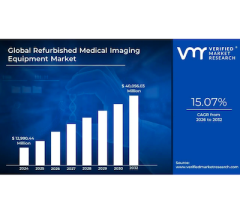
March 5, 2015 — The Centers for Medicare and Medicaid Services (CMS) has released the 2015 National Impact Assessment of Quality Measures Report (2015 Impact Report).
The 2015 Impact Report demonstrates that the nation has made clear progress in improving the healthcare delivery system to achieve the three aims of better care, smarter spending and healthier people, according to Patrick Conway, M.D., CMS deputy administrator for innovation and quality and chief medical officer.
The report is a comprehensive assessment of quality measures used by CMS. It examines the effectiveness and impact of measurement while demonstrating how to achieve optimal results from quality measurement programs. The report summarizes key findings from CMS quality measurement efforts and recommended next steps to improve on these efforts.
Specifically, the report outlines the performance on quality measures over time and improvements achieved. Findings from the report include research on 25 CMS quality programs and hundreds of quality measures from 2006 to 2013 and builds on the prior 2012 Impact Assessment Report. Many of these measures are also included in incentive programs that link payment to quality performance.
Highlights include:
Quality measurement results demonstrate significant improvement. 95 percent of 119 publicly reported performance rates across seven quality reporting programs showed improvement during the study period (2006–2012). In addition, approximately 35 percent of the 119 measures were classified as high performing, meaning that performance rates exceeding 90 percent were achieved in each of the most recent three years for which data were available.
Race and ethnicity disparities present in 2006 were less evident in 2012. Measure rates for Hispanics, Blacks and Asians showed the most improvement, and American Indian/Native Alaskans and Native Hawaiian/Pacific Islanders the least improvement. Transparency and monitoring of measure rates by race and ethnicity for all publicly reported measures and ensuring that disparities across programs, setting and demographic groups are eliminated, remain top priorities consistent with the CMS Quality Strategy.
Provider performance on CMS measures related to heart and surgical care saved lives and averted infections. From 2006 to 2012, 7,000 to 10,000 lives were saved through improved performance on inpatient hospital heart failure process measures, and 4,000 to 7,000 infections were averted through improved performance on inpatient hospital surgical process measures. (A number of the measures are also included in the previously released patient safety results, demonstrating from 2010 to 2013 a 17 percent reduction in patient harm, representing 1.3 million adverse events and infections avoided, approximately 50,000 lives saved and an estimated $12 billion in cost savings.)
CMS quality measures impact patients beyond the Medicare population. More than 40 percent of the measures used in CMS quality reporting programs include individuals whose healthcare is supported by Medicaid, and more than 30 percent include individuals whose healthcare is supported by other payer sources. This demonstrates the public-private collaboration that CMS facilitates and hopes to expand.
CMS quality measures support the aims of the National Quality Strategy (NQS) and CMS Quality Strategy. CMS quality measures reach a large majority of the top 20 high-impact Medicare conditions experienced by beneficiaries, with more measures directed at the six measure domains related to the NQS priorities, and better balance among those domains. Much of the data resulted from process measures; however, there is an increase in measures related to patient outcomes, patient experience of care, and cost and efficiency. CMS is moving increasingly toward these outcome measures across programs.
Conway said CMS will use the results from the 2015 Impact Report to refine its quality measurement strategies, better understand the measures that have worked well, and guide the development and application of measures going forward.
Other important messages from the report include:
1. Performance based on quality measures has improved, and the programs that include these measures support a healthier individual and a healthier nation; and
2. New themes and actions to consider have emerged, which provide new insights for informed measure and program-specific decisions in the months ahead.
For more information: www.cms.gov


 February 04, 2026
February 04, 2026 









